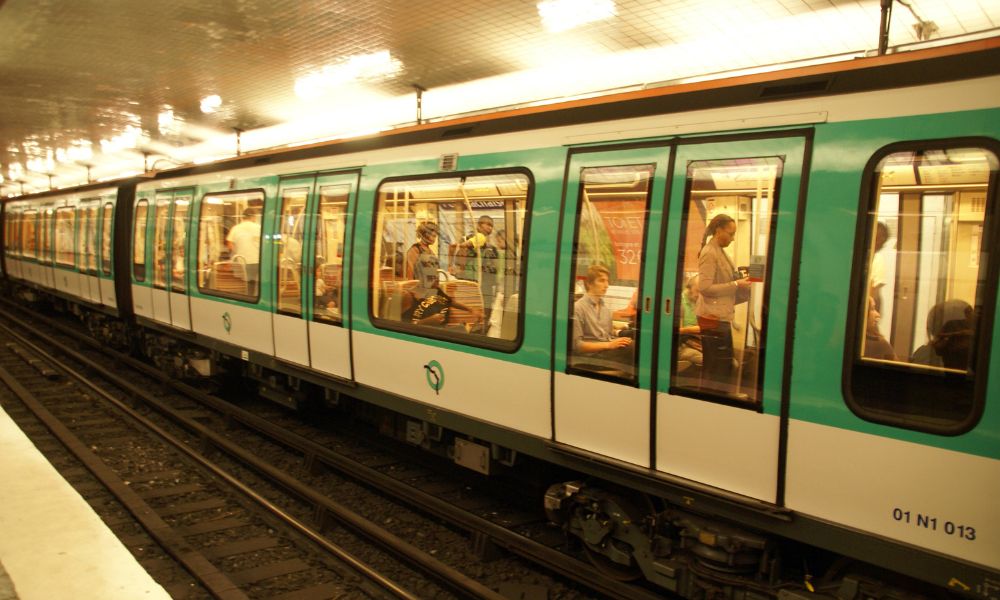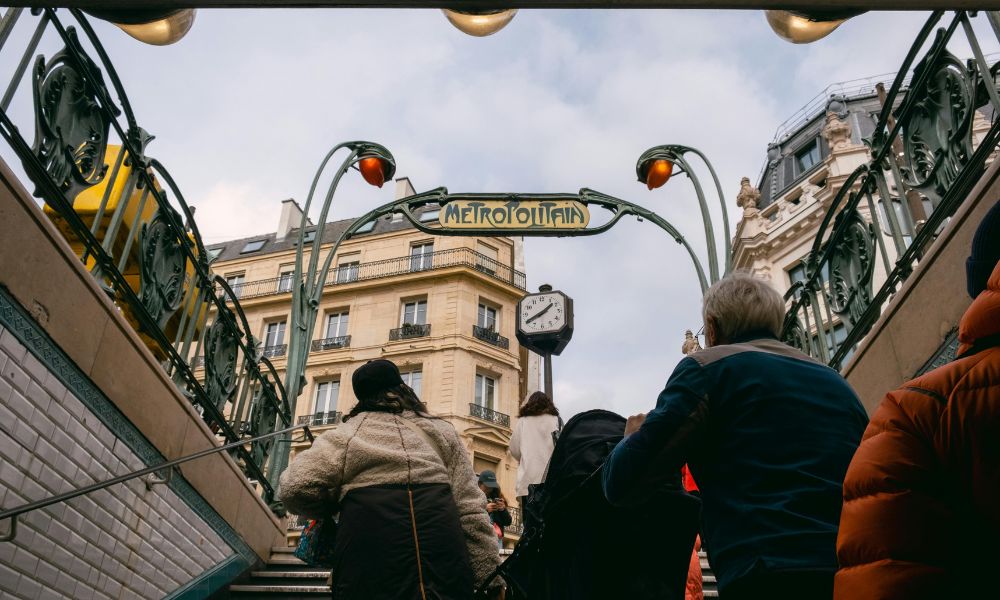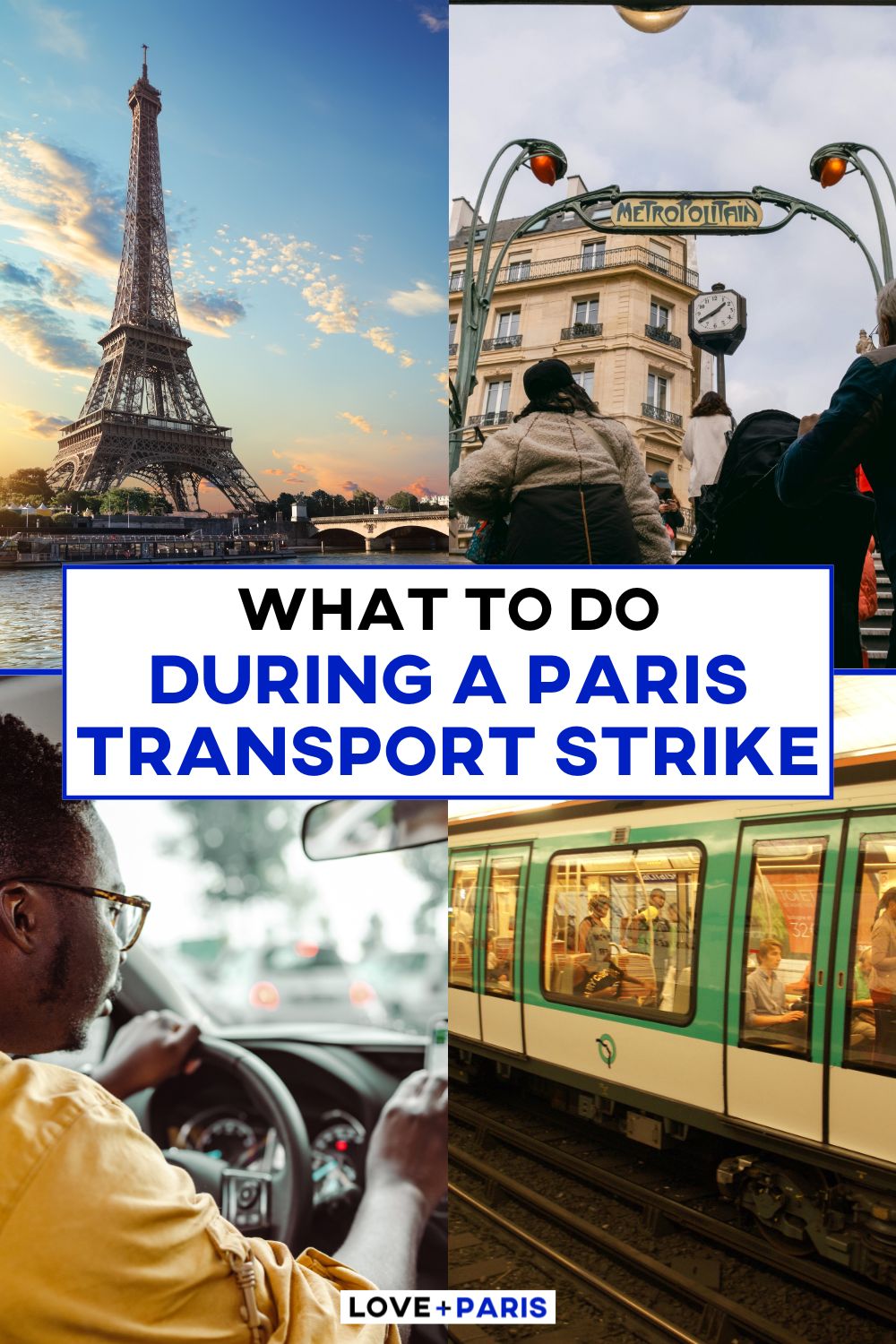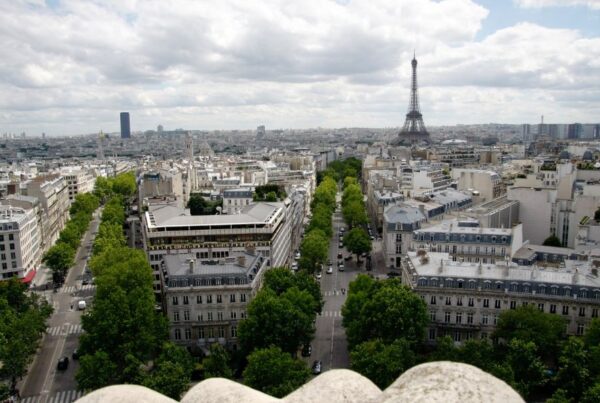Some people joke that the national sport of France isn’t soccer, but striking. After living in France for over 20 years, I kinda have to agree with this. The French do strike a lot, ESPECIALLY members of the country’s different transport unions. If you hear that there might be a transport strike during your trip to Paris, you might be worried about how this could affect your trip, and I totally don’t blame you. But try not to panic or cancel your trip. You can still have an AMAZING and hassle-free holiday by following these super useful tips on what to do if there’s a transport strike in Paris.
*Some of the links in this article will earn a small commission if you click them and then purchase something. Thanks in advance for your support!
Some useful background on French strikes
Before I launch into what to do if there’s a transport strike in Paris, let me give you a little background on French strikes, which are called grèves in French.
France’s rebellious streak was sparked all the way back in the French Revolution, when common folk started standing up for their rights. This began with citizens having a greater say in how the country is run, and this eventually extended to workers’ rights. Even into the late 19th century, most employees didn’t have many rights, and a lot of people worked up to 12 hours a day, six to seven days a week.
It wasn’t until 1936 that a law was passed giving employees paid vacations (congés payées). Since then, all sorts of additional laws protecting workers have been put in place. Defending these is the main goal of workers’ unions, and their main go-to way of doing this is to go on strike.
Where and when do French strikes and protests take place?
Striking workers’ unions often include a protest march, called un manifestation or manif for short, which usually helps draw attention to their cause. These are mostly held on Saturdays, and you can always find out where the protest is taking place online. Search for something like “manifestation Paris X date” and the info should come up.
In general, protest marches usually go through eastern Paris and finish in either Place de la République or Place de la Nation. They tend to start off peacefully and rather festive events (there are even food trucks!), but troublemakers sometimes join in later on, and things can get violent.
If possible, you might want to avoid the area around where the protest is taking place. If you stay away from the protest zone, then you’ll be totally fine. The rest of the city usually feels like “life as normal,” and you won’t even know that the protest is happening. For example, a few years ago during the famous yellow vest protests, which got violent, I didn’t even see any trouble up in Montmartre, where I live. So these strikes and protests do NOT take up the whole city.
What should you do if there’s a transport strike during your Paris trip?
If a possible transport strike is announced during your Paris trip dates, here are some steps to follow that can make a BIG difference to your experience:

Step 1: Find out what services are striking and during which dates of your trip
A good starting point is to try to get some info on what transport services (métro, RER, buses, and trams) are actually striking. Sometimes it’s only one type of transit that’s striking, or just one or two lines and not the whole system. This means that buses could be running if the métro isn’t or vice versa. Keep in mind that the one that IS running might be pretty packed, depending on the time of day.
You can find strike updates details for Paris’s public transit system on the RATP website, in the “info trafic” section. For regional and inter-city trains, check the SNCF’s “info trafic” page.
If airline or airport staff are striking or threatening to, you should be able to find all the info on this on the Aéroports de Paris website.
Some strikes in France last for just a day, while others are reconductible, which means they can be renewed for an unlimited number of days. Uggh. These are the ones that are the most annoying for travelers. I remember some grèves reconductibles that lasted for over a month. These weren’t fun at all, but I’ll share some life-saving solutions in the next sections.
One-day strikes are usually on Thursdays and occasionally on Tuesdays, rarely on other days (unless the strike becomes reconductible).

Step 2: Try to work out if the strike will affect your plans/routes
If you’re already in Paris, or are considering changing your itinerary or hotel booking in advance, you might want to check to see if the strike will actually be getting in your way. If you’re staying somewhere super central and are visiting central sites the day of the strike, you might be totally fine.
Start by using CityMapper or Bonjour RATP to see if the lines you need to take are affected. CityMapper will also give you some alternative transit options.
There are a couple of driverless métro lines in Paris (lines 1, 4, and 14). These usually run without any issues on strike days, so it’s a good idea to try to stay near these lines or visit sites close to stations on these lines on strike days.

Step 3: Know how to seek assistance on the spot
If you’re already in Paris and a strike is happening, here are some ways to get some help:
Find a transit employee: Strikes can be a little annoying in France because they don’t translate the information on in-station message boards and speaker announcements into English. In this case, try to ask a transport staff member for help, they usually speak some English or have translation apps on their work phones.
Ask a fellow commuter: If you’re not near a transit employee who you can ask for info, try asking a fellow commuter, if possible, a young person. There are good chances they speak some English and are usually happy to help foreigners out. You might even make a new friend.
Start with “Excusez-moi, parlez-vous anglais?” (excuse me, do you speak English?) and then you can ask more precise questions to find out what’s going on.

Step 4: Use alternative transportation
If it does seem like the transport strike will get in the way with your travel needs, then there are a couple of alternative transport options here, depending on where you’re going.
For travel around Paris:
Travel on foot: Paris is a compact city, and so it might not be as far as you think to walk from your hotel to a specific attraction. Again, you can use CityMapper or Google Maps to work out the best route. Plus, walking means that you’ll get to admire the city along your way – and work off some extra calories so you can enjoy more treats while you’re in town.
Hop on a bike: Biking is often the fastest way to get around the city, even when there isn’t a strike. There are plenty of Lime bikes, which you can book through the Lime app or Uber. The city also has a whole bunch of bike lanes, so it’s pretty easy and relatively safe.
Use taxis or rideshare apps: Now, this isn’t my number one suggestion. Traffic is usually really bad when there’s a full-on transport strike, and so you may be sitting in that taxi for a really long time watching the price on the meter rise higher and higher – yikes.
Rideshare apps usually do price hikes during strikes, and the drivers can get fed up with waiting in traffic to get to you and cancel, so a traditional taxi might be better. If you do want to take a taxi, book one through the Free Now or G7 taxis (online or via their app), then you won’t have to hunt one down, and you’ll also have an idea of the price in advance.
Book a private transfer: If you’ve got a flight or train, you might want to book a private transfer, like through our trusted partner. This is definitely one of the best ways of getting around Paris during a strike and will remove a ton of stress.
You won’t have to worry about the driver canceling on you, like it might happen with Rideshare drivers, and you shouldn’t run into any issues with missing your flight or train.
For travel between Paris and other places in France:
If the train company is striking and you’re supposed to be using it to travel between Paris and another city, there are a couple of solutions. There are a few bus services, including BlaBlaCar Bus and Flixbus. Since these are private companies, they shouldn’t be on strike at the same time as public transport.
You could also try the ridesharing app BlaBlaCar, which has listings of drivers going between destinations around France. The rides are pretty affordable, but it could take you a bit longer than by train.
If you’re hoping to do a day trip and there’s a suburban or long-distance train strike, you could book a tour that includes travel by minivan or coach and will pick you up at your hotel. For example, there’s this Versailles excursion and this great day trip to Giverny.

Step 5: Change your itinerary if you can’t change your plans
If your hotel is a bit outside the city center and you can cancel it, you might want to book another one that’s more central. This will make it much easier to visit the city on foot, and you might not even be affected by the strike.
If you can’t change your hotel, you might be able to shuffle around your activities. Some tickets are non-refundable, but others can be moved in case of strikes. Check the fine print or contact a venue to see if they’ll be a little more lenient given the circumstances.
A few other things to keep in mind
I totally understand that strikes can be super annoying, but if you can, try not to get (too) frustrated. It doesn’t help matters, and you’ll be able to find a solution to any transport issues, hopefully thanks to the suggestion I’ve included above.
At the very least, try to think of it as a cultural experience. Strikes are part of life in France, and you’ll have an entertaining story to tell your friends and family back home. Trust me, everyone loves hearing a good French strike story.
And if your inter-city train gets canceled, you’ll usually be able to get a refund. They often send out an email telling you how to do this, too.
I hope all of this will help you have a fabulous time in Paris and more easily take on any strike hurdles that could arise.
After reading my article on what to do if there’s a transport strike in Paris, you might be looking for other tips on transport in Paris. Read Next:
Pin this…










